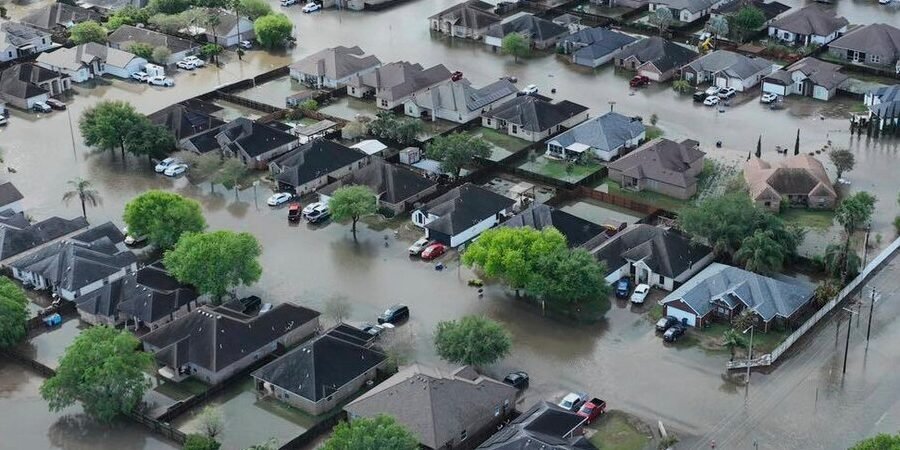As historic floods ravage Central Texas in July 2025 especially along the Guadalupe River many relocated citizens are being shown a shocking obstacle in their efforts to obtain relief: a mandatory “Israel Loyalty Pledge.” This stipulation, part of regional and state disaster relief contracts, demands that those receiving the aid promise they are not supporters of the Boycott, Divestment, and Sanctions (BDS) movement against Israel.
The legislation, taken from a 2017 bill in Texas, mandates that people and businesses who contract with state government entities affirm they will not boycott Israel. Texas is one of over 30 U.S. states with anti-BDS laws efforts widely promoted by pro-Israel lobby groups like AIPAC (American Israel Public Affairs Committee).
But in the aftermath of a natural disaster, critics suggest such loyalty oaths are not just misplaced illegal.
This backlash is not new. When Hurricane Harvey devastated parts of Texas in 2017, the same anti-BDS oaths were inserted into public recovery relief contracts with little public notice. Legal and civil liberties groups quickly protested.
The American Civil Liberties Union (ACLU) has led a battle against these laws, arguing that they are violations of the First Amendment, which guards freedom of speech and citizens’ rights to participate in political boycotts a form of protest used and recognized by the U.S. Supreme Court since 1982.
Although lower courts have given mixed verdicts, the U.S. Supreme Court did not accept core challenges in 2023 and thereby, in effect, allowed the laws to remain in force temporarily. That action made one thing absolutely clear: federal judicial intervention on this point is currently constrained.
The 2025 floods of July were described as “catastrophic” by authorities as entire communities were inundated, homes knocked down, and lifestyles interrupted. The re-emergence of the anti-BDS clause has been the subject of severe condemnation in this context.
“I needed help to rebuild, not pledge allegiance to another country’s politics,” posted one New Braunfels resident on social media platform X (formerly Twitter). “I did not anticipate disaster relief to be put to a political test.”
Eyewitness reports suggest several Texans opted to decline aid over signing the rider, while others signed under pressure for fear of further delays in receiving vital aid.
There are no peer-reviewed journal articles that demonstrate such pledges improve the effectiveness of aid or serve any utilitarian role in disaster relief. The insertion of political loyalty clauses into humanitarian relief protocols by critics is deplored as forcing consent by coercion.
The ongoing enforcement of anti-BDS laws during natural disasters puts Texas, and the nation as a whole, in a precarious legal and ethical position. While proponents argue these legislations fight anti-Semitism and shield a vital ally, opponents argue they politicize disaster aid, turning a constitutional right into a conditional privilege.
“It’s not Israel or Palestine it’s about the integrity of our First Amendment rights,” Legal analyst Vera Rodriguez of the Texas Civil Rights Coalition added. “If we normalize this type of political prerequisite for flood relief, what’s next?”
Texas is not the only one. Florida, Georgia, and Arkansas have also appended similar conditions to public contracts, including education, healthcare, and infrastructure contracts. Even freelance contractors like teachers and journalists have in some instances been asked to sign them.
Increasing numbers of cities have begun to follow in its footsteps, imposing these conditions on local aid, disaster relief budgets, and school contracts. This blending of foreign policy positions with public services is part of so-called “dangerous precedent” civil rights watchdogs say.
Federal courts up to now have had mostly imposed strict interpretations of these statutes, especially the ones that apply to businesses as opposed to individuals. But the political and ethical backlash grows, especially when these provisions fall in issues of life and death, like recovery from flood devastation.
The U.S. Congress has yet to offer final thoughts regarding whether anti-BDS measures are unconstitutional, though many members especially progressive ones have openly discredited them.
For now, Texans who recently endured one of the worst floods in recent history face a decision: comply with an unrelated political promise, or forfeit desperately needed assistance.
The controversy surrounding Texas’ anti-BDS loyalty oath highlights a deeper national fault line: Can government compel political alignment in return for public assistance? When floodwaters creep up, must relief be contingent upon one’s views about Middle Eastern geopolitics?
For those stuck in the middle frequently low-income, displaced, and desperate to receive aid the question is anything but theoretical. It’s about justice, liberty, and survival.
Texas Flood Victims Told to Sign “Israel Loyalty Pledge” for Aid: Civil Liberties Under Water?



